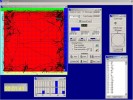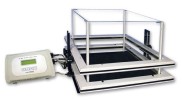Authors
M. Naassila, O. Pierrefiche, C. Ledent, M. Daoust.
Lab
EA2088 ETP-APC Environnement Toxique Périnatal-Adaptations Physiologiques et Comportementales Laboratoire de Physiologie-Alcoologie, Université de Picardie Jules Verne, Faculté de Pharmacie, Amiens, France.
Journal
Neuropharmacology
Abstract
Recent advances in the understanding of the neurobiological basis of alcohol dependence suggest that the endocannabinoid system may play a key role in the reinforcing effects of ethanol. In the present study, disruption of CB1 receptors in mice generated on a CD1 background decreased both ethanol consumption and preference. This decreased ethanol self-administration was associated with increased sensitivity to the acute intoxicating effects of ethanol. Mutant mice were more sensitive to the hypothermic and sedative/hypnotic effects of acute ethanol administration (1.5–4.0 g/kg), although plasma ethanol concentrations did not differ from those of controls. Moreover, wild-type mice exhibited normal locomotor activation caused by 1.0–2.5 g/kg injection of ethanol, whereas mutant mice displayed sedation in response to the injection of the same ethanol doses. The severity of alcohol withdrawal-induced convulsions was also increased in CB1_/_ mice. Our results suggest that CB1 receptors participate in the regulation of ethanol drinking and demonstrate that their disruption lead to increased ethanol sensitivity and withdrawal severity.
BIOSEB Instruments Used:
Acquisition software: ACTITRACK (ACTITRACK),Infrared Actimeter (LE8815)

 Pain - Thermal Allodynia / Hyperalgesia
Pain - Thermal Allodynia / Hyperalgesia Pain - Spontaneous Pain - Postural Deficit
Pain - Spontaneous Pain - Postural Deficit Pain - Mechanical Allodynia / Hyperalgesia
Pain - Mechanical Allodynia / Hyperalgesia Learning/Memory - Attention - Addiction
Learning/Memory - Attention - Addiction Physiology & Respiratory Research
Physiology & Respiratory Research
 Pain
Pain Central Nervous System (CNS)
Central Nervous System (CNS) Neurodegeneration
Neurodegeneration Sensory system
Sensory system Motor control
Motor control Mood Disorders
Mood Disorders Other disorders
Other disorders Muscular system
Muscular system Joints
Joints Metabolism
Metabolism Cross-disciplinary subjects
Cross-disciplinary subjects Happy new year 2025
Happy new year 2025 
